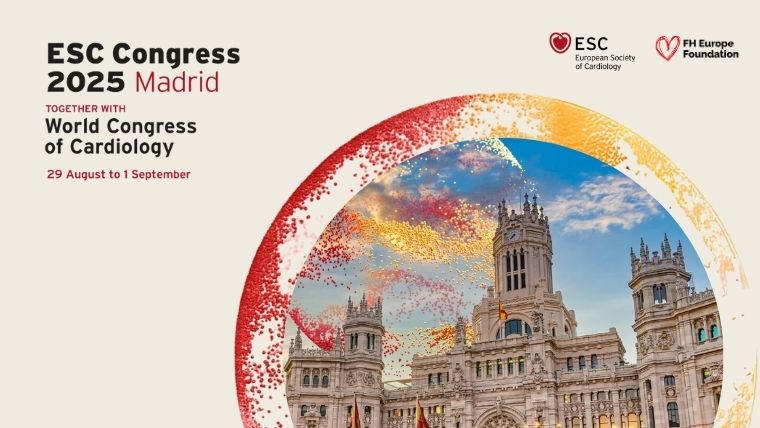
The ESC Congress 2025 in Madrid, held together with the World Congress of Cardiology, marked not only the 75th anniversary of the European Society of Cardiology (ESC) but also one of the most memorable gatherings in cardiovascular health to date. With more than 33,300 participants, 6,390 faculty and presenters, national cardiac societies, patient organisations, and industry partners, this year’s congress was both a scientific landmark and a celebration of community.
FH Europe Foundation was proud to play an active role in this milestone event, amplifying the patient voice and ensuring that familial hypercholesterolaemia (FH), elevated lipoprotein(a) [Lp(a)], familial chylomicronaemia syndrome (FCS), and the broader agenda of cardiovascular disease (CVD) prevention and early detection remained high on Europe’s policy map.
One of the defining moments of ESC 2025 was the presence of His Majesty King Felipe VI of Spain, who addressed a packed auditorium in a special session on “The Heart and Society”, alongside Spanish Minister of Health Mónica García Gómez, ESC President Thomas F. Lüscher, and Prof. Valentin Fuster.
His Majesty’s words underscored the importance of dialogue, collaboration, and collective responsibility in protecting heart health, while also symbolising Spain’s pioneering role as the first country to adopt a national cardiovascular health plan:
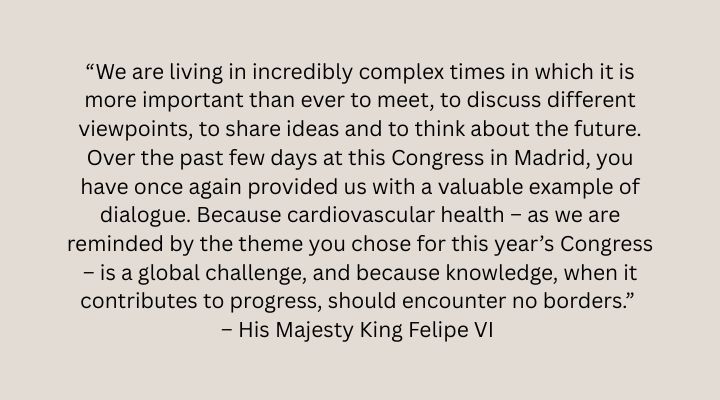
Further reinforcing this message, Spain’s Minister of Health Mrs Mónica García Gómez underwent a cardiovascular health check live at the congress – a powerful demonstration of the role of screening in preventing disease (including cholesterol and Lp(a) measurement).
At the Cardiovascular Community Breakfast organised by EFPIA, our Policy and Advocacy Manager Kitti Almer, delivered a strong intervention on how the forthcoming EU Cardiovascular Health Plan can best serve patients and Member States. Drawing on her experience as former Health Attaché of Hungary to the EU, Kitti highlighted the importance of early FH screening, cardiovascular health checks, and best-practice sharing to reduce Europe’s burden of disease.
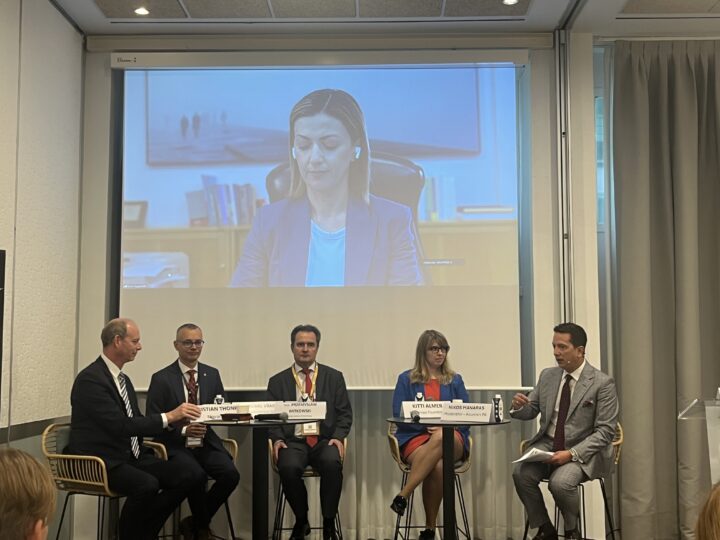
She was joined by leading policymakers, including the Alternate Minister of Health of Greece, who shared inspiring insights into Greece’s prevention programme and its nationwide free testing initiative, including cholesterol and Lp(a) screening.
Our CEO, Magdalena Daccord, joined MSD’s multi-stakeholder symposium on “Shaping the Future of Cardiovascular Care: The Role of Patient Empowerment and Multi-Stakeholder Collaboration”. Moderated by Prof. Fausto Pinto, the discussion featured voices from science and advocacy, including Maite San Saturnino of the Spanish Heart Foundation, who shared patients’ experiences as well as their strategic role as advisors to the government in Spain.
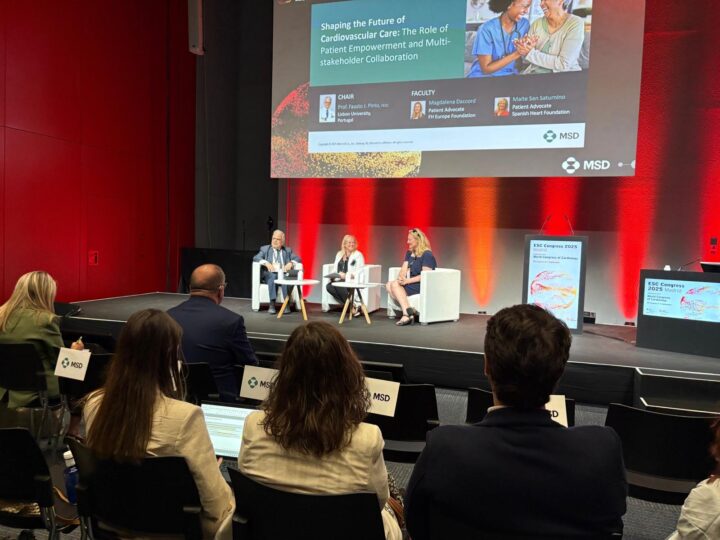
Magdalena emphasised the importance of early detection, patient health literacy, building trust between patients and healthcare systems, and strong cross-sector collaboration to ensure patients are partners in decision-making at every level.
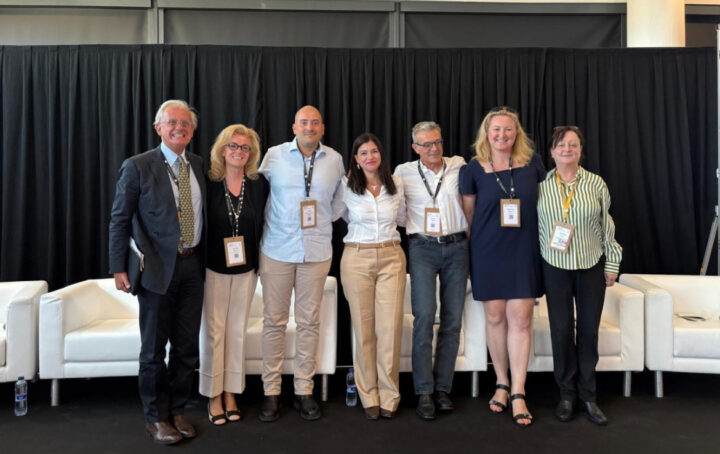
Magdalena also spoke at the ESC/SEC policy roundtable “Cardiology Beyond Borders”, joining European and international leaders (including representatives from the Spanish Ministry of Health, OECD, ESC, and industry) to debate how structured cardiovascular health plans and equitable access to care can be advanced across borders.
Finally, FH Europe Foundation brought the patient voice to the World Heart Federation’s regional roundtable on lipid management. Magdalena shared insights from projects such as PERFECTO FH, FH-EARLY, and PerMed FH, ensuring that lived experience informed discussions on achieving lipid targets among Europe’s high-risk populations. She then shared her recent positive learnings from Czechia, like an example of a Patient Advisory Board to the government, and her worries about the standards of care in adult HoFH patients.
Photo 4 Inherited lipid conditions such as FH and elevated Lp(a) were central to the debate, alongside national strategies presented by leaders including Dr. Rachel Yotti from the Spanish Ministry of Health, who highlighted Spain’s inclusion of FH screening in its national cardiovascular plan.
ESC 2025 was also a platform for groundbreaking scientific progress. Among the major announcements: Links
These new publications will guide clinical practice across Europe and reinforce the role of prevention, early detection, and patient-centred care. More to come with our dedicated announcement on the dyslipidaemia guidelines and free to public webinars.
The congress also offered an invaluable opportunity to connect with FH Europe Foundation’s industry partners, discuss the latest scientific data presented at the congress, and explore potential collaborations. These exchanges play a crucial role in fostering innovation, dialogue, and future partnerships, especially with the Senior Leadership present at the table.
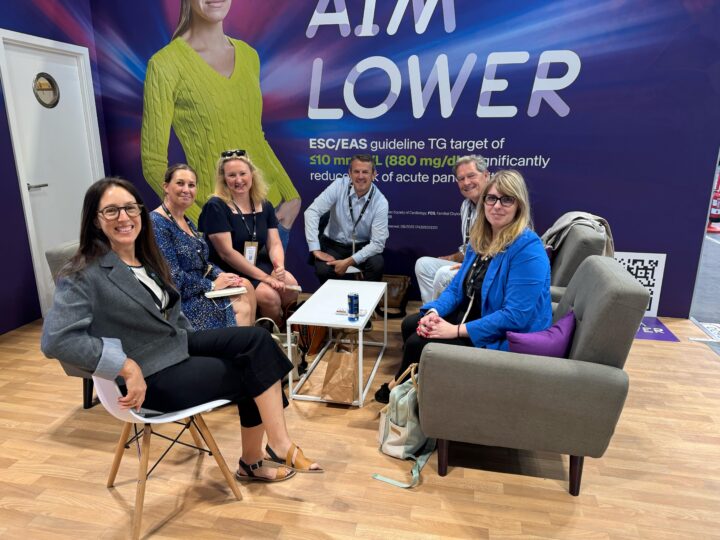
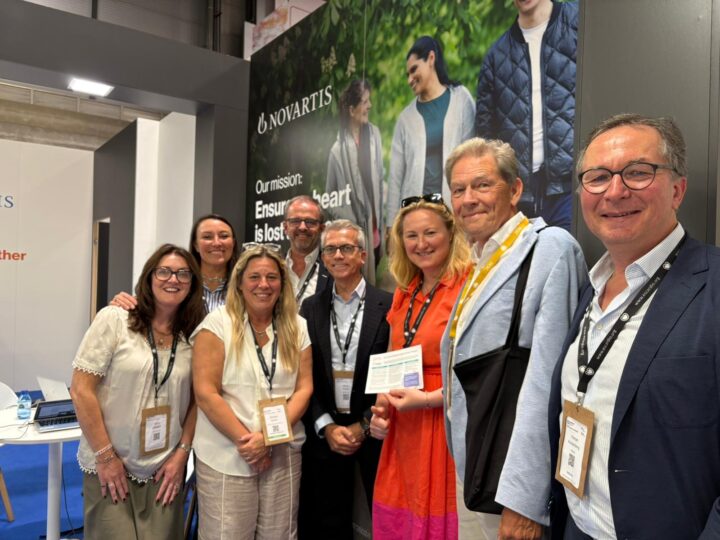
Beyond policy and science, ESC 2025 embraced innovation and education. Our team experienced first-hand the cutting-edge use of virtual reality to demonstrate the behaviour of Lp(a) in the arteries – an engaging and powerful tool for connecting complex science with lived patient experience.
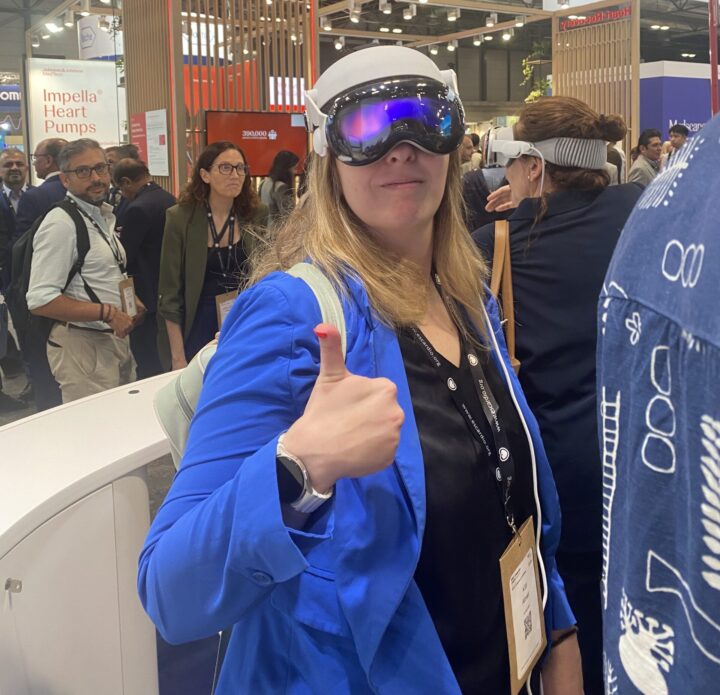
Just like the Spanish Minister of Health, our team joined thousands of delegates in undergoing the on-site free cardiovascular health checks offered at ESC 2025. Despite queues and waiting times of up to two hours, our team was warmly invited to participate, and we gladly took the opportunity.
The comprehensive screening included:
This experience was more than symbolic, it underlined our shared message that screening and early detection save lives, and that patient advocates, clinicians, policymakers, and industry leaders must all lead by example. Now awaiting the results...
ESC Congress 2025 was not just a scientific meeting, it was an unforgettable celebration of progress, collaboration, and community. For FH Europe Foundation, it was an opportunity to elevate the patient voice in European cardiovascular policy. Our Team advocated on behalf of people living with for FH, Lp(a), and rare inherited lipid conditions in prevention and detection strategies. While strengthening our collaborations across healthcare, research, policy, and industry, we were excited to celebrate the 75-year legacy of the ESC.
As we close this historic chapter in Madrid, we now look ahead to ESC Congress 2026 in Munich (28–31 August 2026), another step in our shared journey to advance knowledge, improve patient care, and prevent cardiovascular disease across Europe.